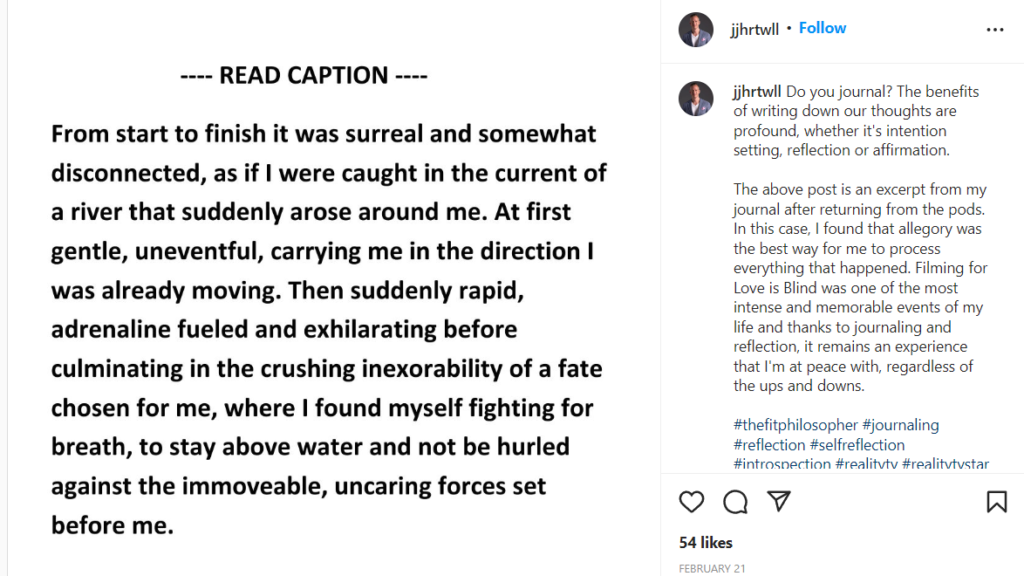
‘Love Is Blind’ Contestant Sues Netflix
Jeremy Hartwell said producers plied the cast with alcohol, deprived them of water and food, and paid them far below minimum wage.
Former “Love is Blind” competitor Jeremy Hartwell has filed a lawsuit against Netflix, alleging that the corporation violated a slew of labor rules.
According to CBS News, Hartwell, a Chicago mortgage industry director who participated in the show’s second season, filed the case in Los Angeles Superior Court in June. He accused Netflix of enforcing “inhumane working conditions” on set and offering an abundance of booze to the cast while withholding food, water, and sufficient compensation.
“It’s a matter of justice for me, and it’s not about the money,” Hartwell said.
“I am convinced that these practices are wrong and must be changed.” And the reason I’m putting in these efforts with this lawsuit is that I’m hoping it will serve as a catalyst for these changes, so that future reality TV cast members will not have to go through this.”
Hartwell also cited as defendants the show’s cast, production company Kinetic Content, and casting company Delirium TV.
Hartwell was among the 30 cast members selected for season 2 of Love Is Blind, which started streaming earlier this year. After failing to find love, however, he ultimately wasn’t featured on the show and moved out following the pod phase of the experiment.
In February, the financial services director shared “an excerpt from my journal after returning from the Love Is Blind pods” via Instagram. The entry describes his experience on the show as “surreal and somewhat disconnected as if I were caught in the current of a river that suddenly arose around me.“

According to the lawsuit, staff incorrectly labeled candidates as independent contractors in order to save money by denying them overtime and minimum wage payment.
According to Hartwell, contestants frequently worked 20 hours per day, seven days a week for $1,000 each week. A quick calculation indicates that this amounts to $7.14 per hour, which is less than half of Los Angeles County’s $15 minimum wage.
Meanwhile, the show’s premise was brilliant: 30 single men and women are placed in pods that allow them to communicate with, but not see, their possible spouse on the other side. Those who become engaged are taken on a honeymoon before revealing their partner to their families – and decide whether or not to marry.
“The combination of sleep deprivation, isolation, lack of food, and an excess of alcohol all either required, enabled or encouraged by defendants contributed to inhumane working conditions and altered mental state for the cast,” the lawsuit read.
Hartwell said he hopes his potential class-action suit on behalf of his fellow participants will change these practices. But Kinetic Content revealed in a statement Saturday that the lawsuit was baseless.
“Mr. Hartwell’s involvement in Season 2 of ‘Love is Blind’ lasted less than one week,” a production company representative said. “Unfortunately, Mr. Hartwell’s voyage came to an end early as he failed to form a meaningful connection with any other participant.”
The spokesman also stated that Kinetic Content would not speculate on Hartwell’s motivations for initiating the complaint, which had “absolutely no merit.” The statement continued with a threat that the production company will “vigorously defend against these charges.”
